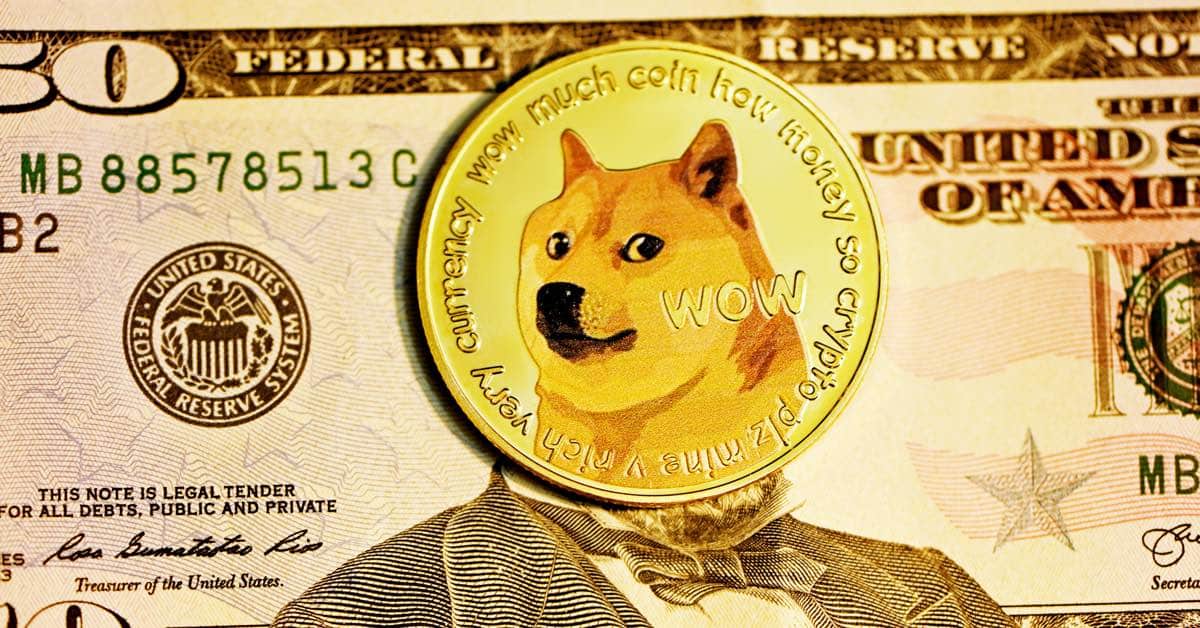The cryptocurrency market has exploded and I’m pretty sure it’s here to stay – one way or another. That’s not to say in five years the crypto scene could go through multiple evolutions and look very different from the landscape we manage right now. However, for understanding crypto right now, the best place to start is with the different types of cryptocurrencies and their uses that are available.
The word “cryptocurrency” is commonly used for not only specific currency types but regularly used instead of “crypto coins” – this can make things a little confusing. In this article, we’re focusing on the actual types of crypto and not the branded crypto coins you may have heard of – like Ethereum and Bitcoin.
Right now there are 9 different categories of cryptocurrency. ‘But isn’t all the same thing?’ I hear you say. Some would argue that yes, all of the different cryptocurrency types out there are just a type of digital payment.
And well, they are, but crypto is a really layered market. Different cryptocurrencies are used for different purposes and this is why there are 9 categories within the cryptocurrency space that they all fit into. Although, to confuse matters, sometimes one form of cryptocurrency will fit nicely into multiple different categories.
Don’t worry, I’ll keep it simple, I can hear your confusion already. I’m here to let you in on all the facts – without the jargon – so you understand what I’m going on about. Keep reading to find out about the 9 cryptocurrency types.
Utility Tokens
Utility tokens are one of the more popular types of cryptocurrency. They represent access to different products and services. Think of them more like vouchers or coupons. Typical, holders of utility tokens, get access to special deals on products and services within a company. The utility token holder can redeem their token for what could be discounted fees or even free products and services.
Without these utility tokens these same products, services, or deals would be far more expensive or sometimes not available at all. However, even if you hold these utility tokens it doesn’t mean you own any portion of ownership in the company behind the token.
So how do utility tokens have any value at all? Well, their value is determined by the demand for the product or service that they actually represent.
Utility tokens are the most common token to be used during an initial token offering (ICO) which is essentially an Initial Public Offering (IPO) but for cryptocurrency. However, unlike IPOs, utility tokens don’t represent a portion of the company that is offering them.
Utility tokens can be viewed as risky when it comes to purchasing as they are not regulated by any sort of financial body. So, for now, they are essentially an asset class that is outside of the jurisdiction of financial regulatory bodies like the Securities and Exchange Commission (SEC).
Examples Of Utility Tokens
- Binance Coin
- Basic Attention Token
- Brickblock
- Siri Labs Token
- Golem
Security Tokens
Sometimes called equity tokens, security tokens typically represent a share in the company it was issued by. They are often compared to the way we buy shares on the stock market. Each share on the stock market is equal to a percentage of the company that issues those shares, security tokens work exactly the same way.
Unlike the lack of regulation that surrounds utility tokens, security tokens are strictly regulated by financial bodies such as the SEC in the US. There doesn’t seem to be a massive difference between utility and security tokens, many of them sit precariously on the fence between the two.
The SEC, however, uses a time-tested questionnaire to decide whether something is actually a security. This is called the Howey Test. So if your cryptocurrency passes the test it’s a security, if it doesn’t it’s a utility.
Security tokens are also traceable assets, just like traditional stock shares and their value lies in something external – like a share of the issuing company. These tokens can be issued in ICO or security token offerings (STOs) and traded on secure cryptocurrency exchanges.
Most security tokens are also broken down into a further three categories: Debt tokens, Equity tokens, and Asset tokens.
The biggest draw for these types of tokens is the potential investment opportunities for investors but it also provides issuers with the means to raise finance for their business or company without borrowing from the banks.
And lastly – not just anyone can buy security tokens, you have to go through an actual stockbroker. This transaction comes with clients’ fees for services and strict protocols that surround the purchasing and trading of this type of cryptocurrency.
Examples Of Security Tokens
- Sia Funds
- Bcap (Blockchain Capital)
- Science Blockchain
- SpiceVC
- 22x Fund
- tZERO
Payment Tokens
Payment tokens are the easiest type of cryptocurrency to understand. As the name suggests, these types of tokens are literally digital monies. Used for buying and selling goods and services digital platforms.
Now, most of the different cryptocurrency types fall into the payment tokens category regardless of what they are – although not all utility tokens can be classed as payment tokens.
Sometimes also known as transactional tokens, this type of cryptocurrency can provide users the opportunity to execute a transaction without the use of a traditional intermediary or central authority, like a bank.
This ‘decentralization’ is one of cryptos biggest goals and draws, the chance to take finance from the hands of the big wigs and put it back into the hands of the people so it can be democratically controlled by the many instead of the few.
Examples Of Payment Tokens
- Bitcoin
- Ethereum
- Monero
- Dai
Exchange Tokens
Exchange tokens are a bit of a funny one, and there’s always a little bit of debate surrounding what exchange tokens really are. However, we know where they come from, which lends them their name.
Exchange tokens are a form of cryptocurrency that is native to a cryptocurrency exchange. Meaning exchange tokens are actually issued by crypto exchanges themselves rather than companies and businesses that use exchanges to trade, buy, and sell their own tokens.
Cryptocurrency exchanges may decide to issue exchange tokens to enhance liquidity, to help establish trust with both users and regulators, as a way for users to avail of discounts on fees, and also as governance such as providing voting rights to token holders.
Not all of the current cryptocurrency exchanges have their own native token. Most exchanges only launch this type of token if it aligns with their strategic focus and user needs.
For the exchanges that do issue these tokens, they are initially distributed through an initial exchange offering (IEO) which is a specific type of ICO.
Just like most other types of tokens, exchange tokens can be traded and sold. However, it is recommended that exchange tokens should not be transferred to external wallets.
Examples Of Exchange Tokens
- BNB Coin
- Gemini USD
- FTX Coin (FTX Exchange)
- OKB (OKB Exchange)
- Shushi
Non-Fungible Tokens
Non-fungible tokens, or NFTs, are the new darlings of the cryptocurrency world. They have been gaining a lot of traction all over social media and lots of people are scrambling to work out what they are and how they can make money from them.
Put simply, NFTs are digital certificates of ownership. This can be for a piece of art, photos, videos, music, and even digital content like tweets and memes. The NFT allows the holder to own the original item, although it doesn’t stop anyone from making their own ‘knock-off’ version much like a poster of the Mona Lisa isn’t the original but looks the same.
NFTs are bought and sold on designated NFT marketplaces like Rarible, Foundation, and OpenSea.
Non-fungible tokens have become a great method for artists, creators, and, collectors to sell their items. Taking full monopolization of what they create.
Although NFTs have only really begun to become popular in the last couple of years, the first NFT was actually created back in 2015 on the Ethereum Blockchain.
If you want to dive deeper into the world of NFT, check out my article about the best NFT Books to get started.
Examples Of Non-Fungible Tokens
- Crypto Kitties
- Twitter Founder, Jack Dorsey’s First Tweets NFTs
- Logan Paul’s Video Clips
DeFi Tokens
DeFi tokens, similar to other blockchain programs, are tokens native to specific decentralized finance platforms. These types of tokens are particularly valuable in the cryptocurrency market because they not only hold a financial value but also contribute to how these platforms function on a much larger scale.
Decentralized Finance tokens were created to decentralize certain aspects of governance within these different kinds of platforms. They also encourage the community to actively participate in the future of the network.
This idea of de-centralization and a non-custodial environment means users within the community retain possession of their keys and wallets, unlike within a bank. The user community is also given control over where the network is headed. The aim is really to provide a true financial democracy.
DeFi tokens also provide holders with lower interest rates, the opportunity to receive free tokens for specific actions within the network, opportunities to invest in stocks, and the ability to purchase insurance. As well as the opportunity to trade and buy assets, and the ability to vote on how projects and protocols move forward.
Most DeFi tokens are currently based on the Ethereum Blockchain. However, there are a few other blockchains with support for DeFi such as Stellar, IOTA, Cardano, and Polygon.
Examples of DeFi Tokens
- MKR (MakerDAO)
- Comp (Compound)
- ALGO (Algorand)
- ZRX (0x)
- LEND (Aave)
Stablecoins
Stablecoins, or Stable Tokens, are a form of cryptocurrency where their value is tied to another outside asset, such as gold, oil, or fiat money, such as the US Dollar or the EURO, that stabilize their price. Most of the popular cryptocurrencies suffer from one major con – they are pretty volatile when it comes to their value. They can fluctuate wildly and it can be pretty unpredictable as to what they will do one day to the next.
Stablecoins however, much like their name, are far more reliable and stable in value. So how do they stay so reliable? Well, they are backed by a defined ratio and this asset that is backing them must be kept in reserves in that defined ratio.
These lower-risk crypto investment options were created after the demand for a more locked-in type of profit increased from traders. This reaction in volatility, although it helps to put the investor’s mind at ease, does reduce the extreme profits we see with other cryptocurrency types.
As they say ‘with great risk, comes great reward’.
Stablecoins are on many exchanges for trading and can be used to repurpose any profits you make from other cryptocurrencies you may have invested in. This gives the user the confidence that the value of their wallet won’t change.
Although they are far more stable than the likes of Bitcoin and Ethereum, this doesn’t mean they are completely free from fluctuations of any kind. Some things that may cause stable coins to fluctuate are i) market capitalization, ii) how many coins are in circulation, and iii) how many people are investing. Also, if the physical asset that the coins are tied to fluctuates you can expect to see a minor fluctuation in the value of your stable coin.
Examples Of Stablecoins
- Tether Gold
- USD Coin
- Dai
- Empty Set Dollar
- Frax
- DefiDollar
- Gold Coin
Asset-Back Tokens
Much like stable coins, asset-backed tokens are a type of cryptocurrency that has its underlying value supported by a ‘real world’ asset. Some of these assets could be money, stocks, real estate, gold, and precious materials. These asset-backed tokens are effectively a digital representation of these underlying assets on the blockchain.
Most asset-based tokens are actually offered as a form of a security token. Thanks to the nature of the transactions involving the underlying assets, this also means they are strictly regulated like all other forms of security tokens.
The difference between asset-backed tokens and stable coins is that they can be backed at any ratio depending on the issuer. These types of tokens are usually issued through Equity Token Offers (ETO)
The four main categories that asset-backed tokens fall into are debt & equity, asset-backed tokens for commodities, hard assets which are non-fungible, and soft assets which are non-fungible.
Examples Of Asset-Backed Tokens
- OilCoin
- Petroleum Coin
- The Energy Web Token
- Wheat Token Coin
Privacy Tokens
The name of the token sort of gives away what it’s all about, right? Privacy tokens are a type of cryptocurrency used for private applications. This is because their code encourages better privacy than mainstream crypto, like Bitcoin, would.
Privacy tokens are entirely anonymous and almost impossible to trace. This has given them a bit of a naughty reputation for being a crime’s choice of payment.
Yes, it is true that a cryptocurrency, such as privacy tokens, provides the perfect opportunity for untraceable transactions thanks to how all information is concealed but we, non-criminal, type of people deserve a certain level of financial privacy as well.
Privacy tokens provide businesses, companies, and single users the chance to initiate and take part in transactions freely without having to worry about people snooping around in their financial business.
Cryptocurrency actually began as an entirely private form of financial transactions, however as time has gone on people and computer systems have got smarter and thanks to the use of centralized exchanges and the strengthening of KYC regulations, those behind those once anonymous Bitcoin transactions can now be easily identified. This is something many governmental bodies have caught onto whether it be for searching out criminal activities or just keeping an eye on their citizen’s financial activities.
This is something that crypto was initially created to do away with. To out the man, to take back control, and for finances to be dealt with in a truly democratic way. Some would say privacy tokens are really just a new way to get back to cryptos roots.
Examples Of Privacy Tokens
- Monero
- Zcash
- Dash
- Horizen
- Beam
- Verge
Some Last Thoughts On CryptoCurrency Types
As you can see the world of cryptocurrencies and the number of different available variations is incredibly diverse. This list could very well expand tenfold as the years go on, and our need and demand for different forms of digital money increases.
Although we have nine different categories of cryptocurrency types here, it’s pretty obvious that the most popular and well-known of the nine are payment tokens. Within a very short period, they have gone from a real niche type of investment to many businesses and companies making it possible to your to purchase their real-world products and services using these crypto coins.
Many may have scoffed at the idea of digital transactions and the world of crypto but it’s safe to say they aren’t going anywhere any time soon.



